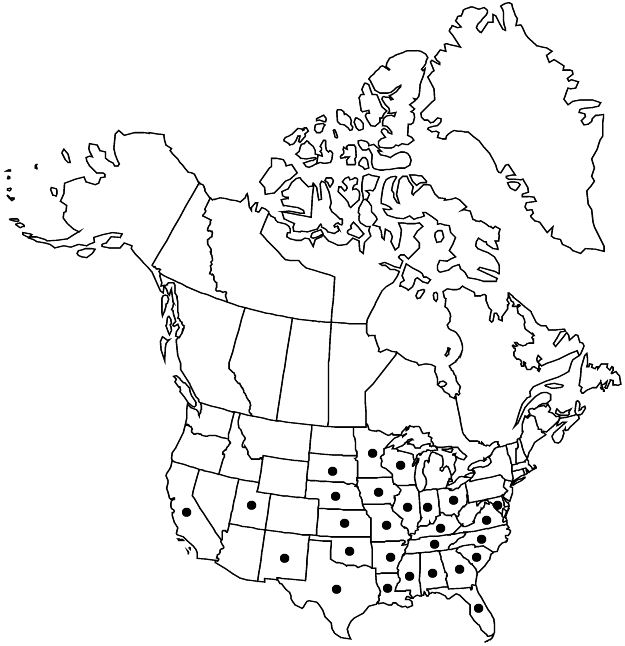Euphorbia cyathophora
Commentat. Soc. Regiae Sci. Gott. 7: 81, plate 1. 1786.
Herbs, annual, with spreading taproots. Stems erect or ascending, 20–100 cm, glabrous, sparsely pilose, or puberulent; branches ± straight. Leaves usually alternate, occasionally opposite proximally; petiole 2–20 mm, glabrous or pilose, or often hispid abaxially near blade junction; blade linear, lanceolate, elliptic, or wider leaves pandurate and unequally 4-lobed, occasionally polymorphic on single plants, 15–250 × 4–40 mm, base acute to cuneate, margins subulately glandular-serrulate distally, or sparsely glandular and subentire, hirtellous to glabrate, flat to revolute, apex acute to cuneate, abaxial surface sparsely pilose or glabrate, adaxial surface glabrous or sparsely puberulent; venation pinnate, midvein prominent. Cyathial arrangement: terminal pleiochasial branches (1–) 3, 1–2-branched; pleiochasial bracts 2–3 (–4), often as tight, involucrate whorl, usually green with white, pink, or red at base, occasionally distal bracts wholly white, pink, or red, rarely all bracts wholly green, similar in shape and size to distal leaves; dichasial bracts often colored, similar in shape and size to distal stem-leaves or highly reduced. Cyathia: peduncle 1.6–2.8 mm. Involucre campanulate, occasionally broadly so, 1.8–2.8 × 2.2–2.8 mm, glabrous; involucral lobes triangularly 3–5 lobed; gland 1, yellow-green, sessile to substipitate and narrowly to broadly attached, 1–1.4 × 0.9–1.6 mm, opening oblong (flattened without pressing), without annular rim, glabrous; appendages absent. Staminate flowers 7–20. Pistillate flowers: ovary glabrous; styles 1.6 mm, 2-fid nearly entire length. Capsules green, depressed-globose to ellipsoid, 2.8–3.2 × 4–4.5 mm, 3-lobed, glabrous; columella 2–2.7 mm. Seeds black to ashy gray or light-brown, cylindric to ovoid, rounded in cross-section, 2.3–3.1 × 1.9–2.5 mm, uniformly tuberculate or tubercles arranged in median, transverse ridge in cylindric seeds; caruncle absent. 2n = 28, 56.
Phenology: Flowering and fruiting late spring–fall.
Habitat: Bottomland forests, stream and river banks, bases of bluffs, fallow fields, roadsides, open disturbed areas.
Elevation: 0–1800 m.
Distribution

Ala., Ark., Calif., Fla., Ga., Ill., Ind., Iowa, Kans., Ky., La., Md., Minn., Miss., Mo., Nebr., N.Mex., N.C., Ohio, Okla., S.C., S.Dak., Tenn., Tex., Utah, Va., Wis., Mexico, West Indies, Central America, South America, in Eurasia, Africa, Indian Ocean Islands, Pacific Islands, Australia
Discussion
Euphorbia cyathophora is native to the midwestern and southeastern United States, Mexico, the West Indies, and northern South America. Leaf shape can be polymorphic on individuals of this species, but not to the extent as in E. heterophylla.
Selected References
None.
Lower Taxa
"connate" is not a number. "distinct" is not a number."entire" is not a number.